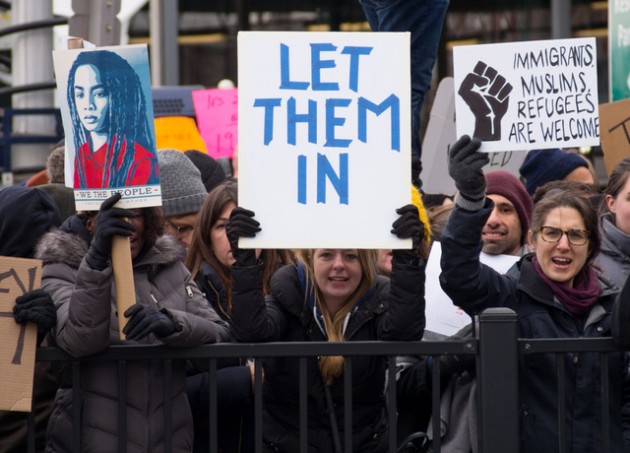With a pedometer attached to the waistband of her slacks, 58-year-old Angela Mason walked 19 steps towards a healthier lifestyle in a hallway in the Cardiology Division of the Howard University Hospital.
Mason was in her first couple of weeks as a participant in a study at the Howard University Hospital to find ways to manage blood pressure in African Americans.
Mason, community liaison officer for the HUH Department of Pediatrics, said she was first prescribed medication for high blood pressure in 1998 after a hysterectomy. Two years ago she received her doctor’s approval to stop taking hypertension medication.
“I [wanted] to learn how to better maintain my health without taking medication,” said Mason on her decision to join the study in October.
The hospital is conducting the study in partnership with the Institute of Natural Medicine and Prevention at the Maharishi University of Management Research in Iowa. The study is designed as a four-year examination of hypertension reduction in African Americans through health education, transcendental meditation and life style changes. Eligible participants are Washington, D.C. African-American residents, 40 and older, with early stage hypertension.
Dr. Muluemebet Krete, research associate of the study, said that each participant goes through baseline testing and posttests at completion, including blood pressure monitoring, echocardiograms, treadmill exercises and pedometer monitoring. Participants are randomly placed in either the group centered on health education and transcendental meditation or the enhanced education-based group for a four-month period. Participation in the study is free.
Now in her last month, Mason, who is in the transcendental meditation group, is bittersweet about leaving the study.
“My blood pressure is within the normal range and has been steady,” she said. Mason finds the outcome of the program pleasing and will continue practicing transcendental meditation after she completes her trial.
“It [transcendental meditation] has helped me become more balanced and centered. I’m not as stressed. There are not as many pains and complications, and I’m not on any medications,” Mason said.
Over 40 percent of African Americans are hypertensive, according to the American Heart Association. Rosemary Palmer-Powell, 52, has lived with moderate levels of high blood pressure for six years. She completed the transcendental meditation component in September and says her blood pressure improved by the end of the trial.
Powell, a federal government management analyst, said she is continuing to practice the meditation techniques she learned.
“Transcendental meditation automatically helps you relieve stress,” she said. “The effects are accumulative. You have a clearer mind and eventually realize that you start to be calm even when you aren’t meditating.”
Powell meditates first thing in the morning before she leaves her home or on a commuter bus to work and later in the day before dinner.
“The setting doesn’t have to be completely quiet,” she said. “The more you meditate, the easier it is to calm yourself and surrounding sounds don’t interfere.”
Meditating provided Powell with the stamina to shed 15 pounds.
“I lost the weight in June and have kept it off,” she said. “It wasn’t hard. Meditating allowed me to be more relaxed about going into and sticking with my goal.”
In a statement on the American Association of Physicians Practicing the Transcendental Meditation Program website, Dr. Vernon Barnes, a member of the association, said that transcendental meditation works by reducing stress which in turn lowers blood pressure.
Sixty-three-year-old Sarah Stevens says she will do anything to help her lower her blood pressure without medication.
“I think a lot of our medical problems can be controlled by eating what’s good for us, exercising and meditating,” Stevens said.
“I believe in preventive methods. I have told myself everyday that I want to be healthy for the rest of my life without being on medication or having to have someone care for me,” she continued.
She is also a past participant in the study and says transcendental meditation has become fully integrated into her life.
“I think about TM first thing in the morning and all day it’s on my mind,” she said. “Just like we need food to survive, I feel I need to meditate.”
Stevens, who finds contentment in spending time with her children and grandchildren, credits transcendental meditation with getting her through the trials of life.
“When I found out my sister had pancreatic cancer, I believe the meditation really helped me keep myself together,” she said.
Karen Bandy, TM instructor for the HUH study, said that people can easily be taught the technique in seven steps, in which they learn to sit with their eyes close while using a meaningless sound that leads the mind to a quiet place. The technique usually requires 20 minutes twice a day, she said. “A five-year-old could learn it, as can the old, young, blind, or crippled,” Stevens said. “It’s for everyone. I met an 86-year-old man who has been practicing for 13 years.” Teaching transcendental meditation since 1977 and practicing it personally since 1973, Bandy, 60, said TM relieves deep rooted stress and fatigue, allowing me to have more energy and be more productive. Kathy English Holt, a 51-year-old massage and hypnosis therapist, has been meditating for over 15 years. Owner of a private therapy practice in her Northwest Washington home, she said meditation is a free, unbiased technique that brings personal balance and African Americans should become more aware of its advantages. “We [African Americans] have that power to choose and we should choose meditation,” Holt said.

